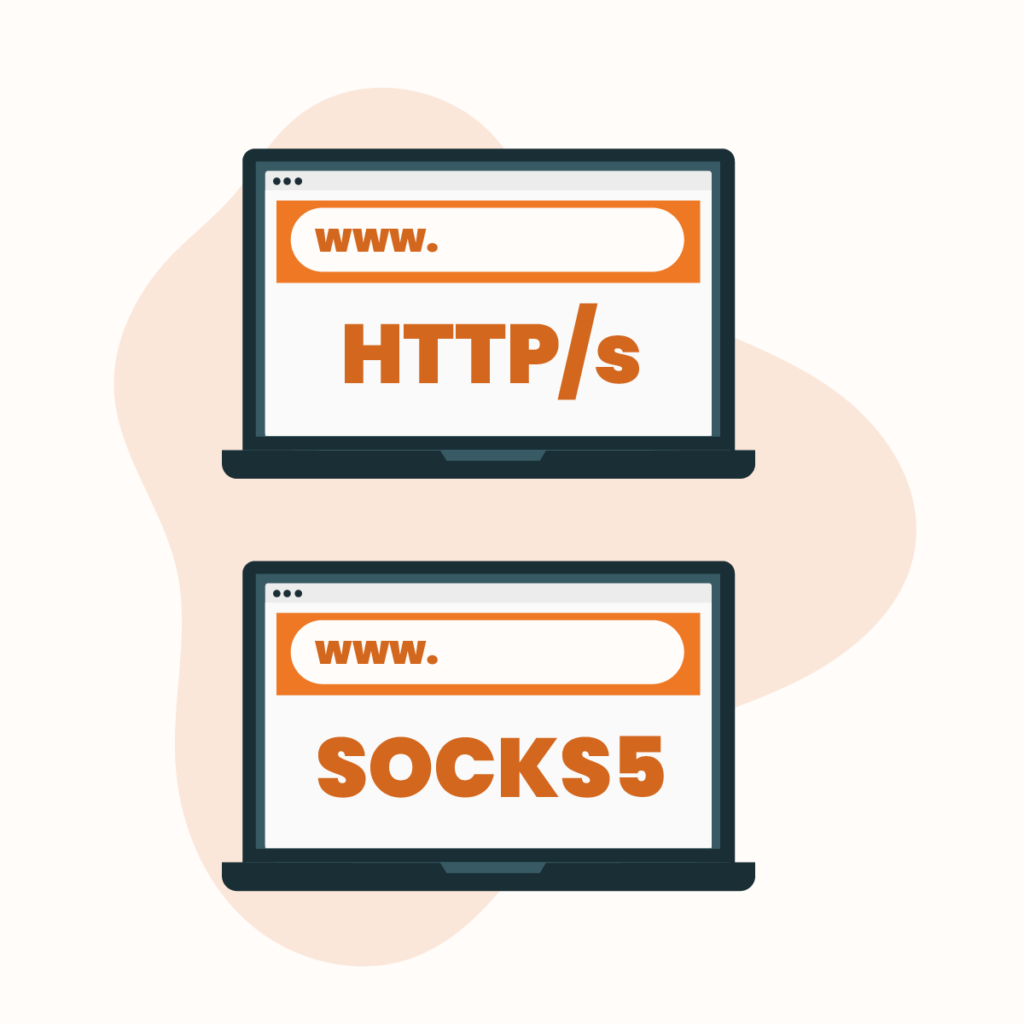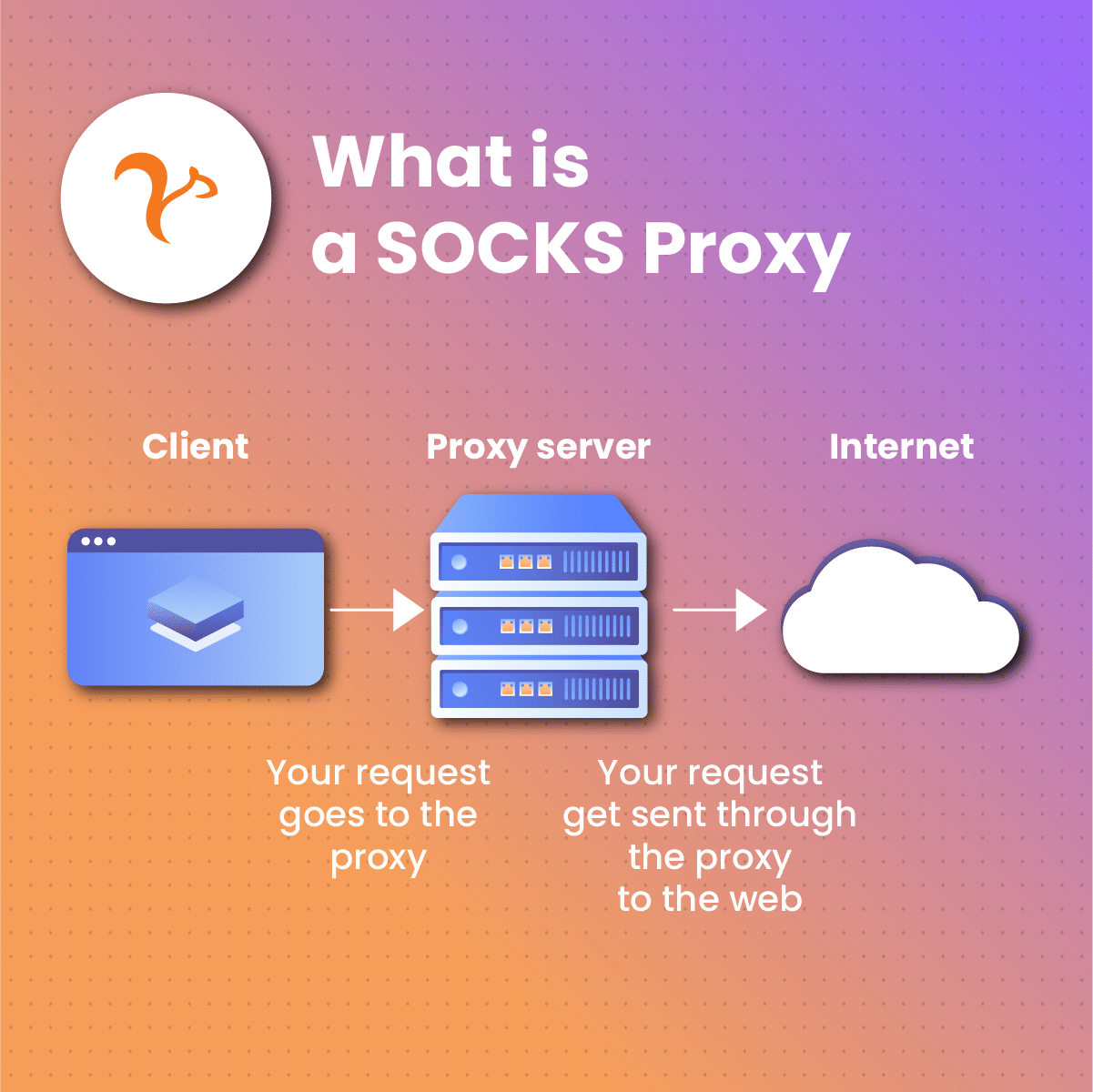HTTPS proxies are a great tool for accessing web pages or websites via a web browser without any restrictions or limitations. The main benefit of using any type of proxy server is that your identity and actual location will stay hidden. Hence, content concealed based on geographical areas can be viewed easily with the help of a proxy server.
There are various types of proxy servers embedded with different features and techniques, but HTTPS proxies and SOCKS proxies are far more common and stand out among the others.
Even though their characteristics differ from each other, they are the most common types used by companies. With a better understanding, you’ll be able to switch between proxy types and port numbers to gain the maximum benefit in a situation.
This article will help you understand both HTTPS proxies and SOCKS5 and their differences while operating as web servers.
What are HTTPS (SSL) Proxies?
HTTPS proxy is, in fact, the HTTP proxy with the letter “S,” which means that the HTTP connection is supported with SSL (Secure Sockets Layer) making it more secure. This proxy is mostly used for sending sensitive information.
HTTP proxies are designed to process requests specifically from applications that use the HTTP protocol. However, HTTPS proxies can process requests from a broader range of TCP-based protocols, such as HTTP and SMTP. Using these proxies enhances security since the data transferred through them is encrypted and becomes unreadable if intercepted.
HTTPS proxies are considered to be higher-level proxies.
What are SOCKS Proxies?
Secure Sockets proxy, generally known as SOCKS is a proxy server used for general needs.
It establishes a TCP connection with another server on behalf of the client, and once the proxy connection is successful, data can be exchanged between the client and the SOCKS server.
SOCKS proxies can work with most connections or protocols.
With a SOCKS proxy, you can access websites that prevent regular internet access using a firewall. Moreover, it can also be used to grant access to a TCP that has been blocked.
There are two protocol versions used by this proxy:
SOCKS4 – Supports TCP connections only.
SOCKS 5 – An updated version of SOCKS 4. While the SOCKS 5 protocol typically supports both UDP and TCP, our SOCKS5 proxy specifically supports only TCP, along with login and password authorization, and remote DNS-query.
Using Port Numbers
Being attentive about the port number that your proxy uses is essential. It is because a specific proxy may require a particular port number for communication to create a connection and function properly.
Once a specific port number is assigned to a proxy, the data communication is done through that port. The SOCKS protocol can use a wide range of port numbers. Similarly, http/s proxies can operate on any port, provided the proxy server itself permits it, though traditionally port 443 is associated with HTTPS and port 80 with HTTP.
Differences between HTTPS and SOCKS5
Now you have a basic understanding of HTTPS proxies and SOCKS proxies.
Both HTTPS and SOCKS have their own place and are useful, respectively. But, certain features of HTTPS proxies makes it more accessible than SOCKS proxies. Let’s take a look at what they are:
1. Data Infiltration and Web Scraping
When it comes to the interception of data, the operation of HTTP proxies is at a higher level than the SOCKS5 proxy server and stands out when filtering online content.
HTTP proxies have the capability to read and interpret network traffic. This means they can detect compromised data and monitor for any potentially suspicious activity.
Furthermore, using HTTPS proxies can be advantageous when web scraping. They provide a layer of anonymity, especially when fetching data from major platforms like Google or Amazon. However, it’s essential to understand that when connecting to HTTPS sites, the proxy does not view the actual data due to the secure encrypted connection, unless it acts as a man in the middle, which many legitimate proxy services, including ours, do not engage in. In contrast, SOCKS or SOCKS5 proxies do not have the same capability to interact with or interpret HTTPS network traffic in the same way that HTTPS proxies might.
Just keep in mind, SOCKS or SOCKS5 proxies cannot infiltrate data or interpret network traffic as HTTPS proxies do.
2. Encryption and Security
HTTPS proxies offer robust encryption, ensuring the security of your data as it passes through the server. This encryption not only safeguards your online activity but also provides protection when engaging in activities such as using torrents or downloading sizable files. While these proxies bolster security, they also help in avoiding potential throttling by network providers.
With SOCKS proxies, SOCKS5 provides improved security features such as authentication methods not present in SOCKS4 proxy servers.
3. Functionality
HTTPS proxies use the HTTP protocol, which is ideal for users who use web browsers to retrieve information.
SOCKS proxies functionality is different from HTTPS proxy servers. They don’t use HTTP protocol but have no restrictions for the users in accessing information online.
The SOCKS5 protocol is used mostly for general needs and is considered a lower-level proxy type.
4. Speed
HTTPS proxies offer two types of proxies when considering the speed – Private proxies and public proxies.
Private proxies allow you to manage your online activities easily without any struggle.
Concerning public proxies, it’s quite the opposite. Due to the high value of online users, speed can be affected. Therefore, accessing a web page can consume time. The rate of speed depends on the type of HTTPS proxy you use.
SOCKS proxies generally have good speed making it a simple type of proxy. Hence, they are ideal for online data transfers and downloads.
5. Connecting with Tools
HTTPS proxy servers connect with almost every tool, unlike SOCKS proxies which have pretty limited abilities.
Therefore, when choosing a proxy, be aware of the tools you use the most and the proxy’s compatibility with it, ease of the integration process, and other resources such as useful documentation for setting up your proxy correctly with the tool.
NetNut offers HTTPS proxies for better user experience while ensuring the full protection of your data.
Guarantee your success using a faster proxy speed with a high-quality performance for web scraping and market research, while obtaining online anonymity.
7-day free trial







